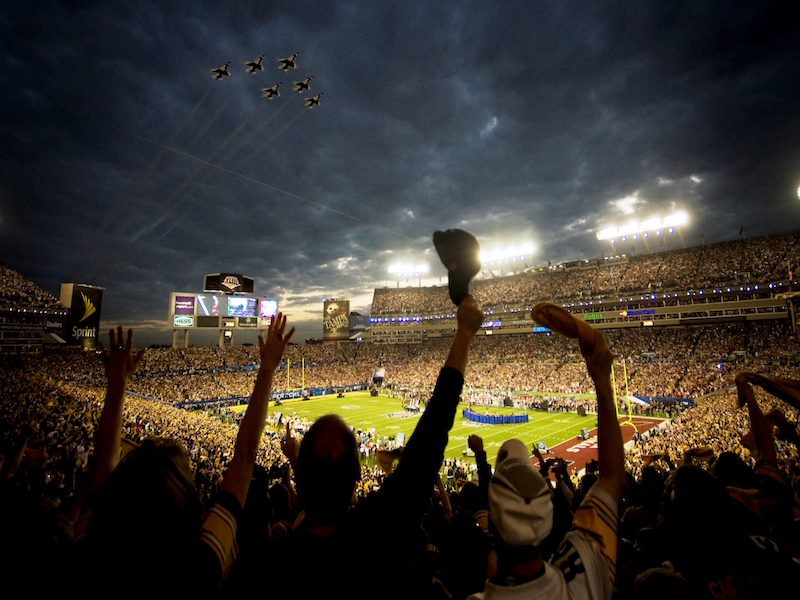On February 6, The Washington Post published a list of the “Five Most Political Super Bowl Commercials.” While memorable Super Bowl commercials from the past used to feature puppies, Clydesdales, and Betty White, this year the brands took a more reactive response to the current political climate. What is the point of producing a politically charged advertisement, and does it really influence the public?
The United States advertising industry is the largest in the world, with a market of $190 billion USD in 2016, more than double the size of China’s advertising market, which comes in second. Its revenue averages about one percent of the United States GDP over the past five years, and industry spending is projected to increase to $220 billion USD in 2018.
The rate for a 30 second ad spot in the 2017 Super Bowl held on February 7 was a whopping $4.8 million. The total spending on Super Bowl ads from 1967 to 2016 is $5.9 billion, adjusted for inflation. In 2016, the Super Bowl’s estimated share of US broadcast network TV ad spending was 2.4%. With its massive advertising revenue, and a viewership of over 111 million people, there is no doubt that this year’s Super Bowl is the best platform to tell a story – even if it is a little political.
The overarching theme of this year’s political ads was diversity. From an explicit statement by 84 Lumber on American citizenship and the concept of immigration that was deemed too controversial to air, to Google’s elegant and subtle demonstration of diversity in American families, to a father’s plea for a better world and future for his young daughter from Audi, it’s hard to view these ads in a vacuum, independent of the recent political climate in the United States.
Much of the research on advertising and voter behaviour is strictly connected to political advertising. The most distinctive feature of a traditional political ad campaign is its negative tone, which compares the favourable candidate to others through ad hominem attacks on their opponents. Unlike commercial advertisements, political ads do not have to adhere to a code of ethics administered by the Advertising Division of the Better Business Bureau. However, political ads are generally ineffective, because they are largely ignored. Research from UCLA and Stanford University shows that television users tune out almost half of all campaign commercials.
This is what makes the Super Bowl’s ad market different and unique. In 2014, 25% of Americans said that they watch the Super Bowl solely for the commercials. Super Bowl commercials are attractive to viewers because they incorporate human and risqué themes that are overwhelmingly avoided by some politicians.
However, despite being more appealing to viewers, there’s no indication that these commercials increase sales for any particular company. A two year study by the research firm Communicus found that 80% of the ads played at the Super Bowl do not increase sales. For entertainment purposes, companies choose to limit their branding in exchange for a compelling story (this is why you have a six-minute commercial selling lumber without an explicit mention of the company until the very end), which results in a disconnect between the commercial and the company itself.
In fact, despite being the most newsworthy commercial, Lumber 84’s Super Bowl spot received a ‘D’ from the Kellogg School of Management at Northwestern University. It failed to do what it was hoping to do: recruit new talent to work at the company. So why would companies such as Lumber 84 or Airbnb take such an explicit stance on a controversial issue like diversity in this day and age when research has shown that it will not improve business?
It might be a sign of solidarity with the company’s consumers. Research from the Global Strategy Group found that 56% of North Americans think it is appropriate for a company to stand up for what they believe in, politically, regardless of whether or not it is controversial. A study conducted by Forbes indicated that 8.1% of Americans are more likely to purchase from a company that shares their opinions.
Lumber 84 was clearly targeting President Trump’s travel ban. The majority of millennials who voted in the election were against the style of his campaign, which included talks about building a wall on the border with Mexico and cracking down on immigration. Considering Lumber 84 was hoping to recruit 20-somethings to work at the company, the ad may have been successful after all.
Photo: “Super Bowl XLIII – Thunderbirds Flyover” (Year), by U.S. Air Force via Wikimedia Commons. Public Domain.
Disclaimer: Any views or opinions expressed in articles are solely those of the authors and do not necessarily represent the views of the NATO Association of Canada.




